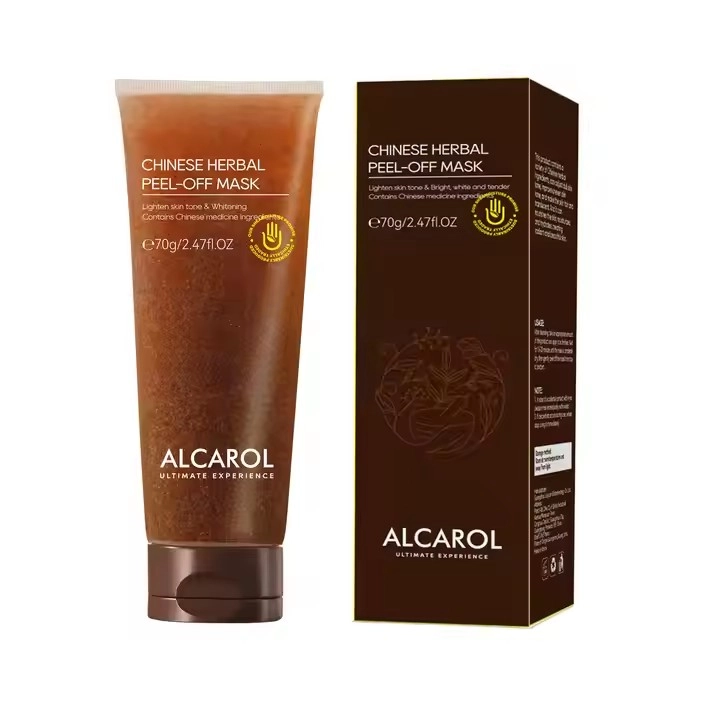Views: 220 Author: cosmeticsinhot Publish Time: 2025-11-03 Origin: Site








Content Menu
● Understanding Your Skin Type
>> Normal Skin
>> Oily Skin
>> Dry Skin
● Identifying Your Skin Concerns
>> Aging Skin
>> Dull Skin
>> Clay Masks
>> Cream Masks
>> Gel Masks
>> Sheet Masks
● How to Choose the Right Mask for Your Skin Type
>> Step 1: Assess Your Skin Type
>> Step 2: Identify Your Skin Concerns
>> Step 3: Choose the Mask Type
>> Step 4: Read the Ingredients
>> Step 6: Follow Up with Skincare
Choosing the right facial mask can be a transformative experience for your skincare routine. With a plethora of options available, it can be overwhelming to determine which mask is best suited for your skin type. This article will guide you through the process of selecting the perfect facial mask, taking into account various skin types, concerns, and ingredients.

Before diving into the world of facial masks, it's essential to understand your skin type. Skin types generally fall into four categories: normal, oily, dry, and combination. Each type has unique characteristics and requires specific care.
Normal skin is characterized by a balanced level of moisture and oil. It typically has a smooth texture, minimal blemishes, and a healthy glow. People with normal skin can use a variety of masks, but hydrating and nourishing masks are particularly beneficial.
Oily skin produces excess sebum, leading to a shiny appearance and a higher likelihood of acne and enlarged pores. Masks that contain clay or charcoal are excellent for oily skin, as they help absorb excess oil and unclog pores.
Dry skin lacks moisture and can feel tight or flaky. It often appears dull and may show signs of aging more quickly. For dry skin, look for masks that are rich in hydrating ingredients like hyaluronic acid, glycerin, and natural oils.
Combination skin features both oily and dry areas, typically with an oily T-zone (forehead, nose, and chin) and dry cheeks. This skin type requires a balanced approach, so consider using different masks for different areas of your face.
In addition to knowing your skin type, it's crucial to identify any specific skin concerns you may have. Common concerns include acne, aging, dullness, and sensitivity. Understanding these issues will help you select a mask that addresses your needs.
If you struggle with acne, look for masks that contain salicylic acid, tea tree oil, or clay. These ingredients help to reduce inflammation, unclog pores, and prevent future breakouts.
For those concerned about fine lines and wrinkles, masks with anti-aging properties are ideal. Ingredients like retinol, peptides, and antioxidants can help improve skin elasticity and promote a youthful appearance.
If your skin appears lackluster, opt for brightening masks that contain vitamin C, glycolic acid, or fruit enzymes. These ingredients help to exfoliate dead skin cells and promote a radiant complexion.
Sensitive skin requires gentle care. Look for masks that are fragrance-free and formulated with soothing ingredients like aloe vera, chamomile, or oatmeal. Avoid harsh chemicals that can irritate the skin.
Facial masks come in various forms, each offering unique benefits. Understanding the different types can help you make an informed choice.
Clay masks are excellent for oily and acne-prone skin. They work by drawing out impurities and excess oil, leaving the skin feeling clean and refreshed. Common types of clay used in masks include bentonite and kaolin.
Cream masks are typically rich and hydrating, making them ideal for dry skin. They provide a moisture boost and often contain nourishing ingredients like shea butter or oils.
Gel masks are lightweight and refreshing, suitable for all skin types, especially sensitive skin. They often contain soothing ingredients and can provide hydration without feeling heavy.
Sheet masks are pre-soaked fabric masks that adhere to the face. They are convenient and come in various formulations to target specific skin concerns. Sheet masks are great for a quick hydration boost.
Peel-off masks are designed to be applied as a liquid and then peeled away once dry. They can help remove dead skin cells and impurities but may not be suitable for sensitive skin.
Now that you understand your skin type and the different types of masks available, here's a step-by-step guide to help you choose the right one.
Determine whether your skin is normal, oily, dry, or combination. This will narrow down your options significantly.
Consider any specific issues you want to address, such as acne, aging, dullness, or sensitivity. This will help you select a mask with the right active ingredients.
Based on your skin type and concerns, select the type of mask that will best suit your needs. For example, if you have oily skin and are dealing with acne, a clay mask would be a great choice.
Always check the ingredient list before purchasing a mask. Look for beneficial ingredients that target your specific concerns and avoid those that may irritate your skin.
Before applying a new mask to your entire face, perform a patch test on a small area of skin to ensure you don't have an adverse reaction.
After using a facial mask, follow up with your regular skincare routine. This may include cleansing, toning, and moisturizing to lock in the benefits of the mask.
To maximize the benefits of your facial mask, consider the following tips:
Depending on your skin type and the mask's formulation, you can use masks anywhere from once a week to several times a week. Oily skin may benefit from more frequent use, while dry skin should be cautious not to overdo it.
Apply masks evenly using clean fingers or a brush. Avoid the eye area and any broken skin. Follow the instructions on the packaging for the best results.
Take the time to relax while your mask is on. This not only enhances the experience but also allows your skin to absorb the ingredients more effectively.
After the recommended time, rinse the mask off with lukewarm water. Ensure all product is removed to prevent any residue from clogging pores.
Choosing the right facial mask for your skin type is essential for achieving healthy, glowing skin. By understanding your skin type, identifying your concerns, and selecting the appropriate mask, you can enhance your skincare routine and address specific issues effectively. Remember to always read the ingredients, perform patch tests, and follow up with your regular skincare regimen for the best results.

1. How often should I use a facial mask?
- It depends on your skin type. Oily skin can benefit from masks 2-3 times a week, while dry skin should limit use to once a week.
2. Can I use multiple masks at once?
- Yes, this technique is called "multi-masking." You can apply different masks to different areas of your face based on your skin's needs.
3. What should I do if I experience irritation from a mask?
- Discontinue use immediately and rinse your face with cool water. If irritation persists, consult a dermatologist.
4. Are sheet masks effective?
- Yes, sheet masks can be very effective for hydration and targeted treatment, depending on the ingredients used.
5. Can I make my own facial mask at home?
- Absolutely! Many natural ingredients like honey, yogurt, and oatmeal can be combined to create effective homemade masks.
Hot Tags: China, Global, OEM, private label, manufacturers, factory, suppliers, manufacturing company